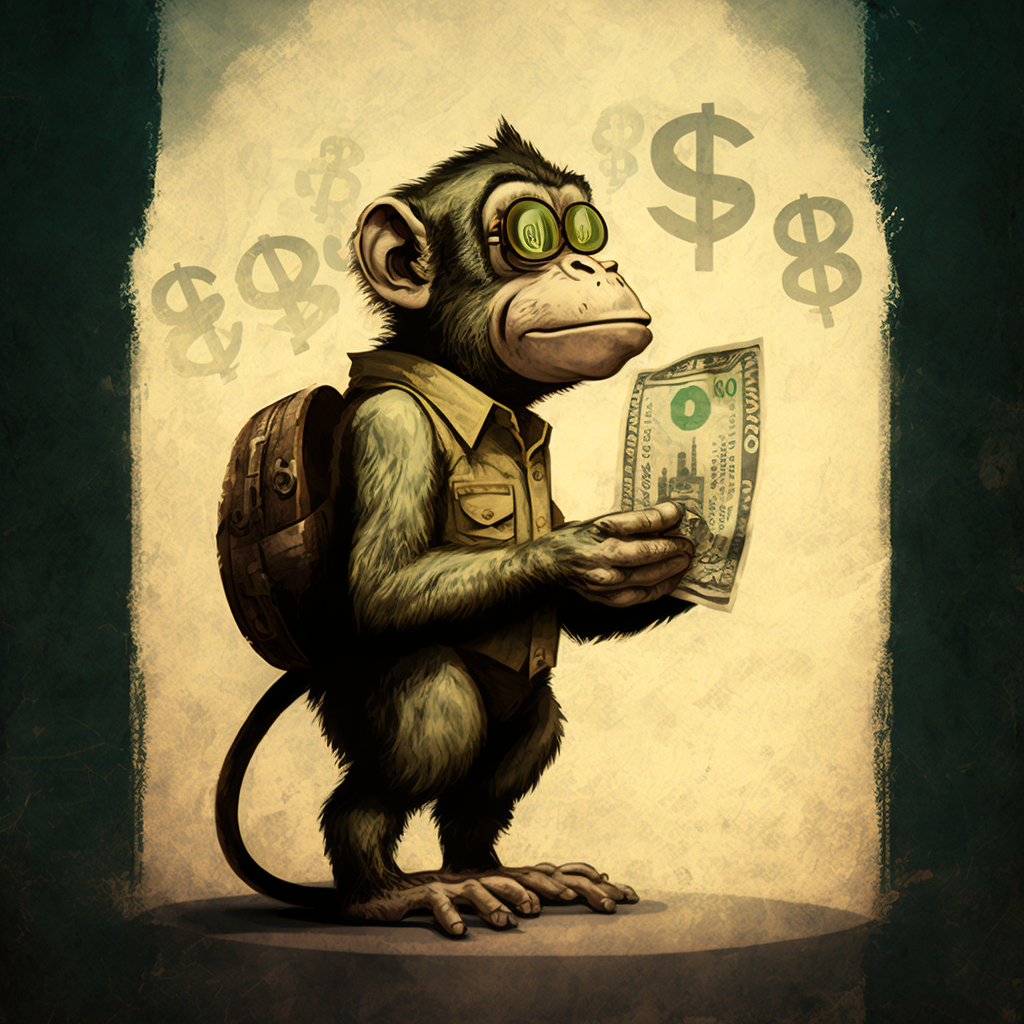
Structural norms in society are difficult to change. But valuing something at $0 is one way to break them.
Indonesia was one of the later countries to adopt the internet for a variety of reasons, with their connected population only reaching 54% in 2020. According to NapoleanCat, the same year saw 61.7% of the population using Facebook.
As a result of this freely accessed walled garden, a solid chunk of the country thinks Facebook IS the internet. Or, more accurately, that the two are completely separate concepts.
Why? It’s incredibly simple.
Facebook is free, the internet connection isn’t.
India also had a similar problem with a different outcome.
But where Zuckerberg initially failed, a company called Reliance Jiu introduced incredibly cheap mobile access across swaths of the country, quintupling the amount of data downloaded from just 6 months previous.
Unsurprisingly, Facebook tried teaming up with them in 2015 to introduce a similar free-access program but was eventually denied by regulators there because of the obvious anti-net neutrality potential repercussions.
This story is repeated across the developing world, with some cases more successful or not, depending on your perspective.
One of these companies is run by a greedy, possibly sociopathic billionaire who deems private control over what millions and millions of people see on the internet to be an ignorable by-product of his personal success and the incessant pursuit of progress.
The other feels the same, but looks, sounds, and acts like the evil twin brother of Data from Star Trek.
One of these pictures is of a robotic idiot, the other is Lieutenant Data from Star Trek. #Zuckerberg pic.twitter.com/0zYiZ44EgN
— Ian Baxter ForBritain ForSwindon 🔱 (@forswindon) April 11, 2018
It’s probably why the two business magnates partnered together a while later.
They also have another underlying common factor; they both used the idea of ‘something for nothing’ to great societal effect.
And now the world is suffering from it.
“Free” thinking behavior
We non-lizard folk definitely have a few problems with our default form of thinking. Ignoring the fact that the concept of 0 didn’t even exist until the year 3 B.C., we somehow ascribe greater benefit to the concept of $0 products.
The primitive part of our brains automatically assumes something sold for $0 has a substantially large upside. Even when our prefrontal cortex raises the red flag of “hey, wait a gosh darn tootin’ minute here, son” it still ignores the deep down details.
The concept essentially says when something is no longer priced above $0, the inherent benefits also increase in value.
- If I sold you a piece of bread for $1, you’d say, “Hey, that bread is worth exactly $1.”
- If I ‘sold’ you that same bread for $0, your brain would think, “Hey, that bread is worth at least as much as a sandwich.”
Marketers know it, or at least the ones that had psychology classes mixed in with their arts degree do. Pricing managers know it. Smart and often successful business people know it, too.
But I wonder if they know the true price of such simple business decisions.
Nothing in life is free
What happens when we give something of value away for free?
When our grandmas give us a cookie, they smile and we fill up with a precious warm childhood glow that will inevitably never be experienced again at some point.
When you drop a $5 bill in a homeless person’s hat, you feel good for hours afterward because of the “warm glow effect,” and they get to eat a stale Big Mac while slowly dying in the cold as frigid strangers pass by averting their eyes.
But nothing in life is free.
The adage withstood the test of time for a reason. It’s why billionaires are generally pro-charity (the giant tax loophole). It’s why NFL players have the highest bankruptcy rates of any industry — estimated to range from 16% to 78% of all players within 12 years — not to mention the extreme physical toll and frequent brain damage.
It’s why our financial system is completely devoid of ‘negative externalities’ in that it fails to account for things like the cost of pollution, people’s welfare, or the long-term negative effects on society of something as seemingly so harmless as removing a simple downvote function across social media.
It’s also why our internet is completely f*cked.
Anchoring on zero
I first heard of the term ‘anchored on zero’ on a terrific podcast, Dan McCrady’s You Are Not So Smart. His guest on the episode was a wonderfully eloquent social scientist named Evelyn Gosnell.
She’s a co-founder of a project called Irrational Labs, whose stated mission is to “use behavioral science to make people happier, healthier & wealthier.”
Her concept — I believe she coined the term — of anchoring on zero is a valid critique of the business model of apps in our world of sociopathic autocratechs.¹
She asked the audience to consider the simple question of what would the world look like if all or most apps actually cost something upfront.
Right along the same lines as the original meaning of being upfront with someone where you put the real meaning on the front of your words.
The opposite of dictionary-ish T&C’s no one ever really reads. Or at a restaurant about to pay your bill when you suddenly find out there’s a 20% automatic tip included and you already gave the waiter a $20 bill. Or the hidden metrics behind behavioral assumptions of adoption rates of mass customers. If you get 1000 people to sign up for anything for free, something like 1–5% will end up paying the bulk of the revenue.
It’s why the most popular games on phones are free. Or any apps on there, for that matter. Or any major site in the world of social media.
These apps and games and platforms all have the common underlying factor of being free on the surface — and fooling our lizard brains into thinking we’re getting an amazing deal.
But they aren’t free.
We all know that. We just behave as if we don’t.
Apps require you to give them emails and names and credit card information only to later bombard you with upgrade offers every 30 seconds.
“Get this deal now — time is running out!”
“I’m sorry to tell you this, but you’re going to miss out if you don’t click right now!”
“Everybody is doing this one thing, why aren’t you? Are you like that loser named JJ?!!”
You know the gist.
The high price of zero
Back to the anchoring on zero idea. It’s an amazing phrase that describes our current tech industry at its very core. These companies thrive on hiding the truth behind the giveaway.
They are the modern-day moralless tobacco corporations, throwing photoshopped babes, bodies, and boobies at our phone-addicted faces, heavily influencing every youth culture around the world without a single care for the harmful effects. The unaccounted-for negative externalities.
“But I don’t use that!” I’ve heard members of older generations say.
True, they use Facebook instead.
And become engulfed in echo-chambered over-personalized newsfeeds that collect every possible data point about every possible commercial, political, and health view and then sell it to companies, governments, and political actors with inconspicuous names like Cambridge Analytica.
Newsflash: they didn’t go away.
Cambridge Analytica was thankfully forced into bankruptcy…and then bought by Emerdata Limited — a company set up shortly after by many of the same people, and the exact same billionaires (Mercer family) who funded the original, with the exact same business purpose.
Take a guess which politicians in America they’re a massive fan of. Jesus Christ, it’s going to happen all over again, but this time in plain sight.
And no one is going to do a damn thing to stop them.
It’s an ad, ad world
We’re already anchored on zero. Think of any industry where the products are being sold for nothing, or as close to zero as possible.
It’s a clear correlation with the advent of the internet. An internet based on advertisements. A business model based on free products in exchange for personal information and then sold to whoever wants it.
- No one trusts the news anymore for often valid reasons
- Social media is free and we’re addicted to it
- Public goods are extracted more than ever and sold on the internet around the world in the form of bottled goods and child-slave chocolate bars
Most news corporations are owned by billionaires, who use them to push forth their political philosophies on how society should run (and be taxed).
Social media is free. Its business model is your data and those who want it aren’t just innocent mom and pop businesses. It’s governments. It’s political actors. It’s unscrupulous hackers.
It’s the same with our oil, our air, our water, our planet. They’re negative externalities with an effective price of $0.
The failure of our global financial system to account for negative externalities in their models has morphed into an internet of negative externalities. An internet apparently only worth $19 trillion. I say only because the entire wealth of the world is estimated at $421 trillion.
And yet this relatively low-valued product is used to decide the most important elections in history like Trump in 2016 or Brexit or hundreds of others across the globe.
It’s used to scrupulously influence massive populations of the world into electing those who hold their own interests far above yours. Above mine. Above our entire f*cking planet’s.
All so they can own an extra yacht they’ll use once a year.
It’s the inevitable consequence of enough time and a completely unchecked free-market system that operates under the guise of a broken condom of a Trojan horse.
The internet is anchored on zero because our modern world is anchored on zero. It should really be the new definition of the free market, in a much more literal sense. We‘re absent-mindedly giving our planet away for nothing, at least on paper.
And while the internet in my view is worth far more than just $19 trillion, its potential consequences have a far larger value.
If the world falls apart, if all of this modern existential anxiety over the pandemic, populist leaders, massive divisions in society, and climate change clearly ramping up its extreme events leads to our destruction someday, then how much would that be worth?
The value destroyed would be infinite.
But at least it cost us $0 to get there, I guess. Welcome to the new real free market, where everything of value is anchored on zero.
For more essays like this, join my free newsletter Pryor Thoughts.
- I took after her and cheekily coined a term myself.



